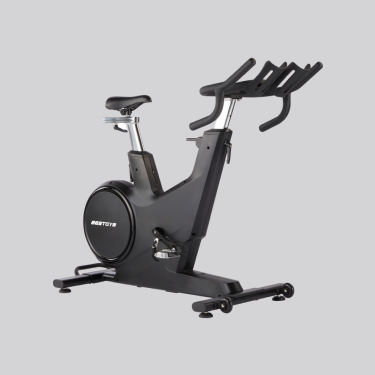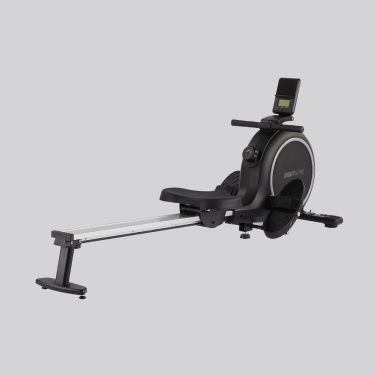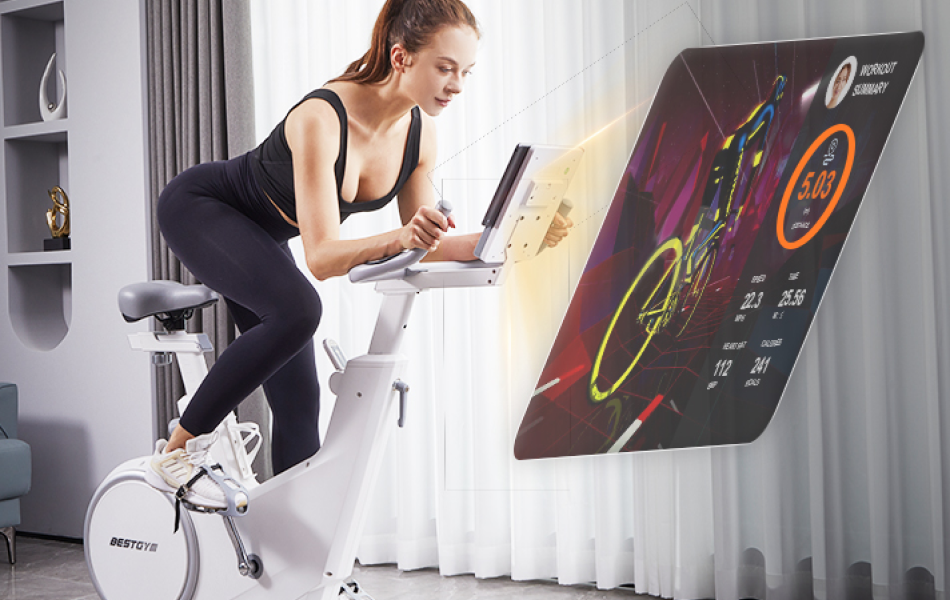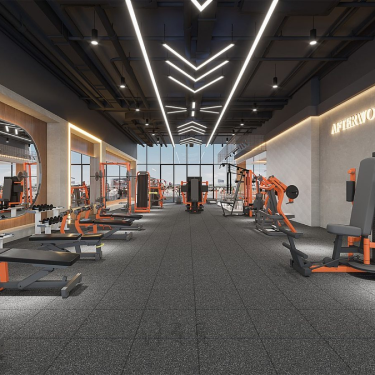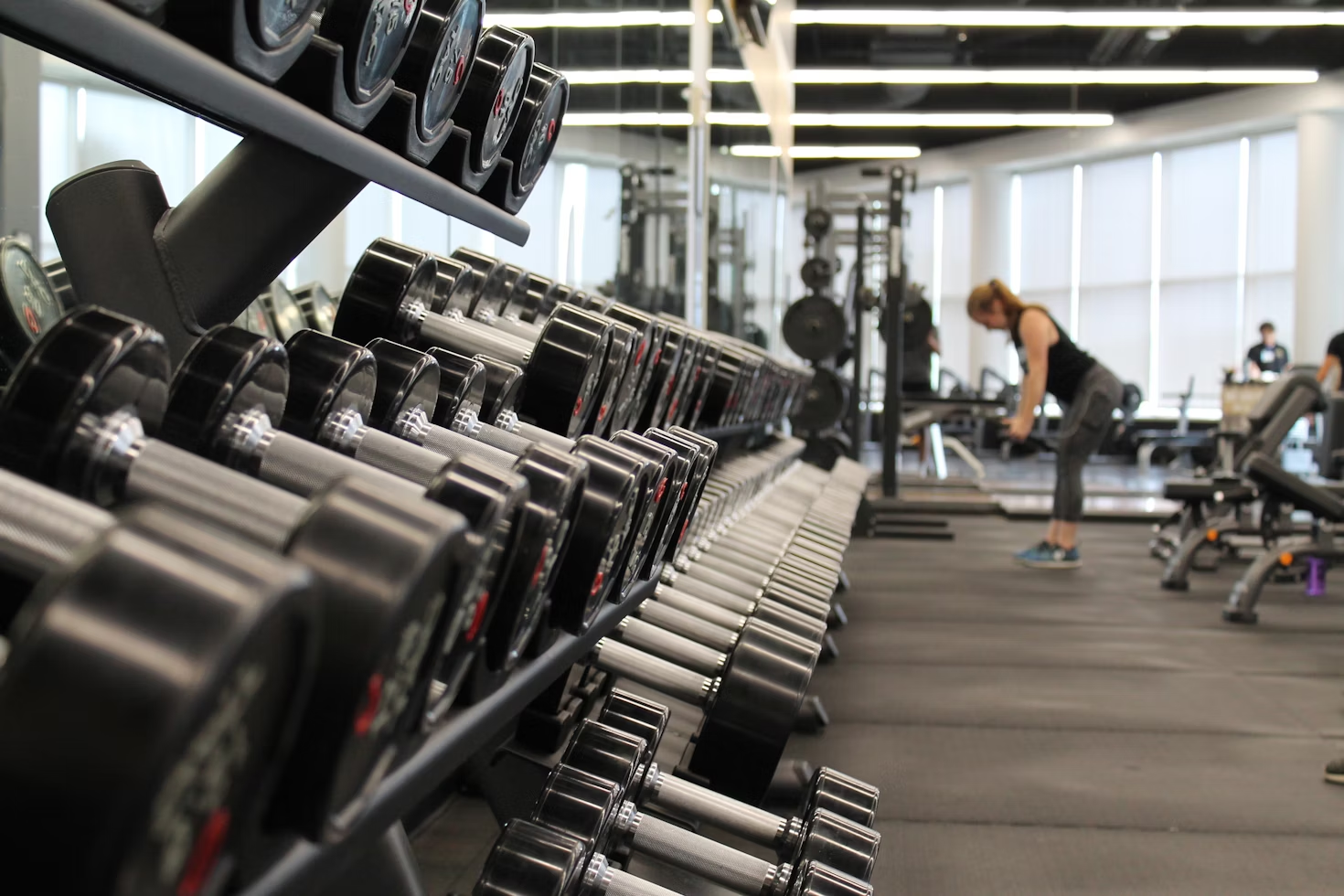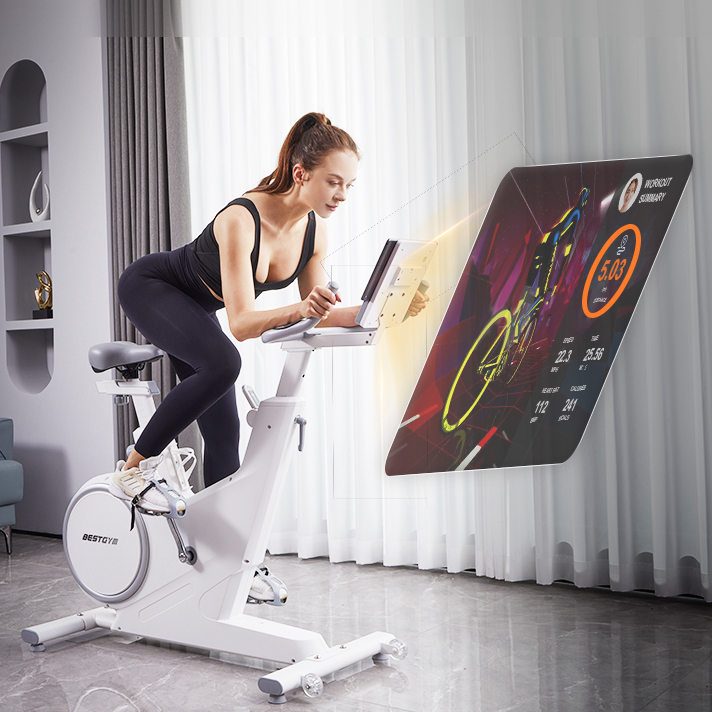How to Choose the Best Gym Equipment Wholesale Supplier: the Ultimate Guide
Choosing the right gym equipment wholesale supplier is crucial for the success of your fitness business, whether you’re starting a new gym, expanding an existing facility, or running a fitness retail store. This ultimate guide will help you navigate the process of selecting a supplier that meets your needs and ensures you get the best quality products at competitive prices. We’ll cover various aspects such as industry overview, criteria for selection, benefits of buying wholesale, challenges and solutions, technology and innovation, and practical tips for gym owners.
Overview of the Gym Equipment Industry in 2024
The gym equipment industry is booming, driven by rising health awareness and the popularity of fitness regimes. This sector encompasses a wide range of products, from basic dumbbells and resistance bands to advanced cardiovascular machines and smart fitness equipment. Understanding the current market trends, including the surge in home gyms and eco-friendly options, is essential for making informed purchasing decisions. 
Market Trends
The gym equipment industry has seen significant growth in recent years, driven by increasing health consciousness and the popularity of fitness regimes. Trends include the rise of home gyms, a surge in demand for smart fitness equipment, and a shift towards eco-friendly products. Understanding these trends can help you choose suppliers that offer the latest and most in-demand products.
1. Increasing Health Consciousness
There has been a notable rise in health consciousness globally, with more people recognizing the importance of regular exercise for maintaining overall health and well-being. This increased awareness has led to higher participation rates in fitness activities and a greater demand for gym memberships and fitness equipment. Consumers are more focused on preventive health measures, looking to avoid lifestyle-related diseases through regular physical activity. As a result, gyms and fitness centers are expanding their offerings to include a variety of equipment that caters to different fitness levels and goals.
2. Rise of Home Gyms
The convenience and privacy of home gyms have made them increasingly popular, especially in the wake of the COVID-19 pandemic, which forced many people to find alternative ways to stay fit while avoiding public spaces. The shift towards remote work and the desire for more flexible fitness options have further accelerated this trend. Home gyms range from simple setups with basic equipment to sophisticated spaces with advanced machines and smart technology. As a result, there is a growing demand for compact, multifunctional, and easy-to-store gym equipment suitable for home use.
3. Surge in Demand for Smart Fitness Equipment
Technology integration has revolutionized the fitness industry, leading to a surge in demand for smart fitness equipment. These advanced machines and devices often feature connectivity to apps and wearables, offering users personalized workout plans, real-time feedback, and progress tracking. Examples include treadmills and bikes with interactive screens, smart dumbbells that adjust resistance automatically, and fitness mirrors that provide live coaching. The appeal of smart fitness equipment lies in its ability to enhance the workout experience, making it more engaging and effective. For instance, a Bluetooth spin bike can sync with fitness apps to track performance metrics and offer immersive cycling classes, providing users with a dynamic and interactive exercise routine.
4. Shift Towards Eco-Friendly Products
Sustainability is becoming a significant concern for consumers across all industries, and fitness is no exception. There is a growing demand for eco-friendly gym equipment made from sustainable materials and designed with energy efficiency in mind. Manufacturers are responding by producing equipment that uses recycled materials, has lower carbon footprints, and incorporates renewable energy sources. Eco-conscious consumers prefer products that align with their values, and gyms that adopt green practices can attract a broader audience while contributing to environmental conservation.
5. Personalization and Customization
Consumers are increasingly seeking personalized fitness experiences, and this trend is reflected in the demand for customized gym equipment. From adjustable weight machines to bespoke workout programs, fitness enthusiasts want solutions tailored to their individual needs and preferences. Suppliers that offer customizable options, such as branded equipment or machines that can be adjusted for different users, are gaining popularity. Personalization enhances user satisfaction and engagement, making it a key factor in equipment selection.
6. Growth of Functional Fitness
Functional fitness, which focuses on exercises that mimic real-life movements, has gained traction among fitness enthusiasts. This trend emphasizes the use of equipment that supports natural body movements, such as kettlebells, medicine balls, resistance bands, and bodyweight training tools. Functional fitness equipment is versatile and often compact, making it suitable for both commercial gyms and home setups. The growing interest in functional training is driving the demand for these types of equipment, encouraging suppliers to expand their product lines accordingly.
7. Expansion of Boutique Fitness Studios
Boutique fitness studios, which specialize in specific types of workouts such as spinning, yoga, pilates, and high-intensity interval training (HIIT), have seen substantial growth. These studios require specialized equipment to cater to their niche markets. As a result, there is an increasing demand for equipment that supports these unique fitness experiences. Suppliers that offer a wide range of specialized equipment are well-positioned to meet the needs of boutique fitness studios.
Types of Gym Equipment
Gym equipment can be broadly categorized into cardiovascular machines, strength training equipment, flexibility tools, and accessories. Familiarize yourself with these categories to ensure you select gym equipment wholesale suppliers that can meet all your equipment needs. 
1. Cardiovascular Machines
Cardiovascular machines, often referred to as cardio machines, are designed to improve heart health and endurance. These machines are a staple in any gym due to their ability to provide effective aerobic workouts.
- Treadmills: One of the most popular cardio machines, treadmills offer adjustable speeds and inclines, allowing users to walk, jog, or run indoors.
- Ellipticals: These machines provide a low-impact workout, simulating walking or running motions without putting stress on the joints. For instance, a stationary elliptical bike offers a smooth, fluid motion that reduces the risk of injury while still delivering an effective cardiovascular workout. This makes it an excellent choice for individuals looking to stay fit without the strain associated with high-impact exercises.
- Stationary Bikes: Including upright bikes, recumbent bikes, and spin bikes, these machines offer a variety of cycling workouts, providing the exercise bike advantage of customizable resistance levels and low-impact cardiovascular training.
- Rowing Machines: Rowers engage both the upper and lower body, providing a comprehensive cardio workout.
- Stair Climbers: These machines simulate the action of climbing stairs, effectively working the lower body and cardiovascular system.
2. Strength Training Equipment
Strength training equipment is essential for building muscle, increasing strength, and improving overall fitness. This category includes a wide range of machines and free weights.
- Weight Machines: These machines target specific muscle groups, providing guided movements to ensure proper form and safety.
- Free Weights: Dumbbells, barbells, and kettlebells fall into this category. They offer versatility and can be used for various exercises.
- Benches: Incline, decline, and flat benches are used in combination with free weights for a range of strength training exercises.
- Power Racks and Smith Machines: These provide a safe environment for performing heavy lifts such as squats and bench presses.
- Resistance Bands: These portable tools offer variable resistance for strength training and can be used in a variety of exercises.
3. Flexibility Tools
Flexibility tools are designed to enhance flexibility, improve range of motion, and aid in recovery. They are essential for a well-rounded fitness program.
- Yoga Mats: Essential for floor exercises, yoga, and stretching routines.
- Foam Rollers: Used for self-myofascial release to relieve muscle tightness and improve flexibility.
- Stretching Straps: These assist in deeper stretches, helping users achieve better flexibility.
- Balance Balls: Also known as stability balls, these tools help improve balance and core strength.
- Stretching Machines: These machines provide guided stretching routines to improve flexibility and reduce the risk of injury.
4. Accessories
Gym accessories encompass a variety of smaller items that enhance workouts and provide additional training options. Familiarize yourself with these categories to ensure you select gym equipment wholesale suppliers that can meet all your equipment needs.
- Fitness Trackers: Wearable devices that monitor heart rate, steps, calories burned, and other fitness metrics.
- Workout Gloves: Protect hands and improve grip during weightlifting and other exercises.
- Jump Ropes: Simple yet effective tools for cardiovascular workouts and agility training.
- Medicine Balls: Versatile tools for strength, coordination, and balance exercises.
- Exercise Bands: Lightweight and portable, these bands add resistance to various exercises.
Understanding these categories of gym equipment will help you make informed decisions when selecting a wholesale supplier. Ensuring that your supplier offers a comprehensive range of high-quality equipment in each category will enable you to meet the diverse needs of your clients and provide a complete fitness experience.
How to Find Reliable Gym Equipment Wholesale Suppliers?
Finding reliable gym equipment wholesale suppliers is crucial for ensuring the quality and consistency of your gym's offerings. The selection process involves evaluating suppliers based on their product quality, pricing, delivery times, and customer service. Knowing where to look and what criteria to consider can help you build strong, long-lasting supplier relationships.
Choosing a gym equipment wholesale supplier involves several critical considerations:
1. Product Quality
Quality is paramount when it comes to gym equipment. Poor-quality equipment can lead to injuries and damage your gym's reputation. Look for suppliers who offer high-quality products that meet industry standards.
2. Pricing
Competitive pricing is essential to maximize your profit margins. Compare prices from different suppliers and consider bulk purchase discounts. However, don’t compromise on quality for the sake of lower prices.
3. Delivery Times
Timely delivery is crucial to keep your gym operations running smoothly. Ensure the supplier has a reliable logistics system and can meet your delivery schedules.
4. Customer Service
Good customer service is a sign of a reliable supplier. They should be responsive, helpful, and willing to address any issues that arise. Look for suppliers with positive customer feedback and reviews.
6 Top Gym Equipment Wholesale Suppliers
Choosing the right gym equipment supplier is crucial for ensuring the quality, affordability, and reliability of the products you offer in your gym or fitness retail business. Here, we introduce some of the top gym equipment wholesale suppliers, each with unique strengths and offerings. Spinning bike manufacturers are continuously innovating to meet the demands of fitness enthusiasts, incorporating features like adjustable resistance, ergonomic designs, and connectivity to fitness apps for a more personalized workout experience. 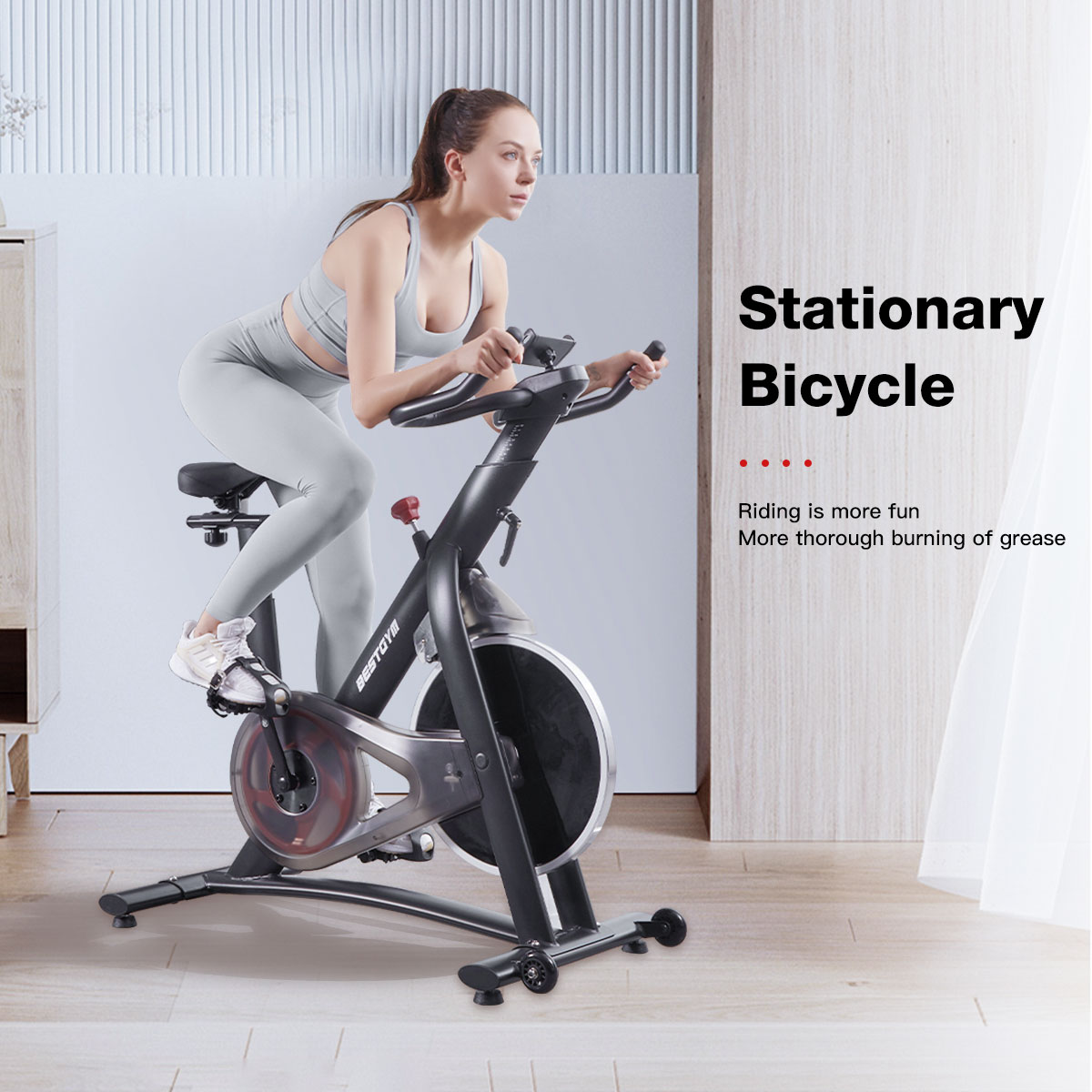
1. BESTGYM
BESTGYM is a leading globally gym equipment supplier known for its high-quality products at competitive prices. With its own manufacturing plant and research and development team, BESTGYM stands out for its innovation and ability to produce state-of-the-art exercise equipment. The company specializes in exercise bikes and rowing machines, catering to both home and commercial gym markets. BESTGYM's commitment to quality and affordability makes it a popular choice for fitness businesses looking to maximize value without compromising on performance.
2. Life Fitness
Life Fitness is a globally recognized brand known for its extensive range of high-quality fitness equipment. The company offers a comprehensive selection of cardio and strength training machines, designed to meet the needs of both commercial gyms and home users. Life Fitness is renowned for its durability, innovative design, and user-friendly features. Their products are often seen in top gyms worldwide, reflecting their reputation for excellence and reliability.
3. Precor
Precor is another leading name in the fitness equipment industry, celebrated for its innovative and ergonomic designs. The company offers a wide range of cardio and strength training equipment, with a focus on enhancing user experience and promoting natural movement. Precor's products are known for their advanced technology, including smart connectivity features that provide personalized workout experiences. Their commitment to quality and innovation makes them a trusted supplier for fitness facilities around the world.
4. Cybex International
Cybex International specializes in premium exercise equipment designed for commercial use. Known for its robust and durable machines, Cybex offers a diverse range of strength and cardio equipment, including their popular Arc Trainers. Cybex equipment is designed with biomechanics in mind, ensuring that users can exercise safely and effectively. Their focus on high performance and user-centric design makes them a preferred choice for professional fitness centers and athletic training facilities.
5. Technogym
Technogym is a leading global supplier of fitness and wellness equipment, renowned for its stylish and technologically advanced products. The company offers a wide array of equipment, including cardio machines, strength training systems, and functional training tools. Technogym's products are often integrated with digital platforms, providing users with engaging and personalized fitness experiences. Their commitment to innovation, design, and sustainability has earned them a prestigious reputation in the fitness industry.
6. Nautilus
Nautilus is a well-established brand known for its comprehensive range of fitness equipment designed for both home and commercial use. The company offers innovative cardio machines, strength training equipment, and accessories that cater to various fitness levels and goals. Nautilus is recognized for its commitment to quality, performance, and user satisfaction. Their products are designed to provide effective and enjoyable workouts, making them a popular choice among fitness enthusiasts and gym owners alike.
Each of these suppliers has a strong reputation in the industry and offers a wide range of gym equipment.
Top Benefits of Buying from Gym Equipment Wholesale Suppliers
Buying gym equipment wholesale offers several significant advantages, including cost savings, a consistent supply of products, and the possibility of customization. By purchasing in bulk, you can reduce the cost per unit and increase your profit margins, making it a smart choice for gym owners and fitness retailers looking to maximize their investments. 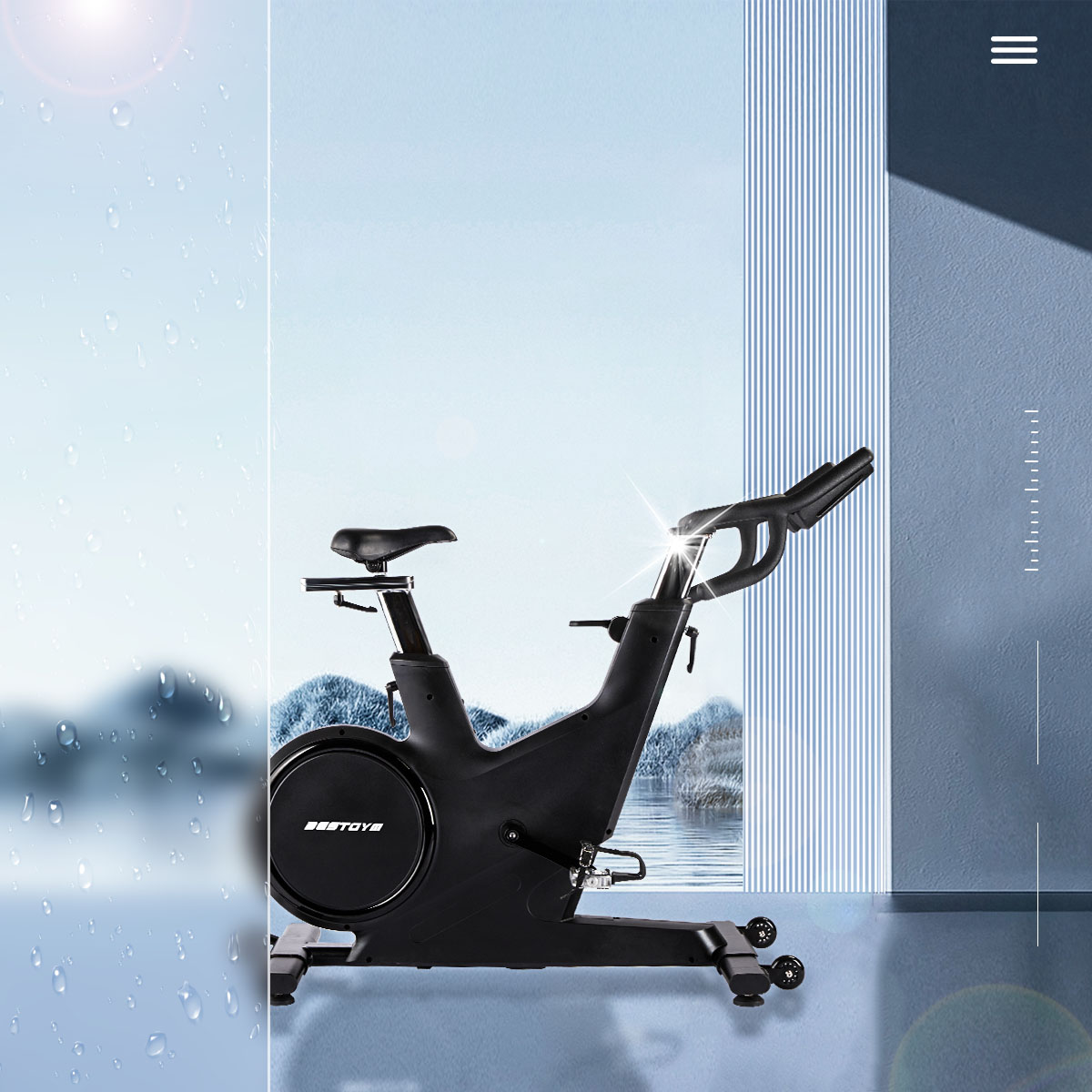
1. Cost Savings
One of the primary benefits of buying gym equipment wholesale is the cost savings. Purchasing in bulk often results in significant discounts, reducing the cost per unit and increasing your profit margins. Purchasing exercise bikes wholesale allows gym owners to save significantly on costs while ensuring they have enough equipment to meet their members' needs.
2. Consistent Supply
Buying wholesale ensures a consistent supply of equipment, which is essential for maintaining the operations of a gym or fitness center. This consistency helps avoid delays and disruptions in your business.
3. Customization Options
Many wholesale suppliers offer customization options for bulk orders. This can include branding the equipment with your gym's logo or selecting specific colors and designs to match your gym's aesthetic.
Purchasing exercise bikes wholesale can offer significant advantages for gym owners and fitness retailers. By buying in bulk, you can benefit from lower unit prices, ensuring a cost-effective way to equip your facility or expand your inventory. Wholesale options typically include a variety of models, such as upright bikes, recumbent bikes, and spin bikes, allowing you to cater to different user preferences and fitness levels. Additionally, establishing a strong relationship with a reliable wholesale supplier can provide you with ongoing support, warranty services, and access to the latest product innovations, ensuring your business remains competitive and well-equipped. A magnetic stationary bike offers a quiet and smooth ride by using magnetic resistance, making it ideal for home workouts where noise levels need to be kept to a minimum.
Common Challenges and Solutions in Wholesale Fitness Products Purchasing
Purchasing gym equipment wholesale comes with its own set of challenges, such as ensuring product quality, managing shipping logistics, and dealing with market fluctuations. Addressing these issues requires strategic planning and careful supplier selection. Implementing quality control measures, choosing suppliers with robust logistics, and negotiating long-term contracts can help mitigate these challenges.
1. Quality Control
Ensuring quality can be challenging when purchasing in bulk. To mitigate this risk, request samples before placing a large order and check for industry certifications and standards.
2. Shipping and Logistics
Shipping large quantities of equipment can be complex. Work with suppliers who have a robust logistics system and consider insurance for shipments to protect against loss or damage.
3. Market Fluctuations
The market for gym equipment can be volatile. To manage this risk, establish long-term contracts with suppliers to lock in prices and ensure a steady supply. By buying exercise bikes wholesale, fitness retailers can maintain a diverse inventory, offering various models to attract a wider range of customers.
Read more: The Ultimate Guide to Selling Gym Equipment in the Gym Equipment Market
Gym Equipment Wholesale Suppliers: Case Studies and Success Stories
Case studies and success stories provide valuable insights into the experiences of other gym owners who have successfully navigated the wholesale market. Learning from these examples can highlight best practices and offer inspiration. For instance, partnering with a reputable supplier helped one gym owner streamline their operations and significantly improve their customer satisfaction.
Successful Gym Owners
Many successful gym owners have thrived by choosing the right gym equipment wholesale suppliers. For example, John Doe, owner of FitLife Gym, attributes his success to partnering with a reliable supplier who provided high-quality equipment at competitive prices. This partnership allowed him to focus on growing his business without worrying about equipment issues.
Gym Equipment Wholesale Supplier Profiles
Highlighting successful suppliers can provide insight into their business practices. For instance, BESTGYM has built a reputation for innovative, high-quality equipment and excellent customer service. Their commitment to quality and reliability has made them a preferred supplier for many gyms worldwide.
Latest Technology and Innovation in Gym Equipment
The integration of technology in gym equipment is revolutionizing the fitness industry. From smart treadmills that connect to fitness apps to AI-powered strength machines, technological advancements are enhancing workout experiences and providing valuable data insights. Staying updated with these innovations can give your gym a competitive edge and attract tech-savvy members. 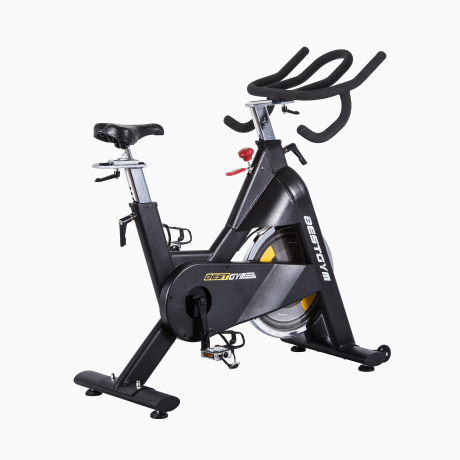
Smart Equipment
The integration of technology in gym equipment has transformed the fitness industry. Smart equipment that connects with apps and provides data analytics is becoming increasingly popular. Suppliers offering these advanced products can give your gym a competitive edge. BESTGYM have a wide selection of workout bicycles for sale, featuring the latest models with advanced features to enhance your fitness routine, including adjustable resistance levels, built-in fitness programs, and ergonomic designs for maximum comfort.
Sustainable Options
Eco-friendly gym equipment is another growing trend. Suppliers that prioritize sustainability by using recycled materials and energy-efficient designs are becoming more attractive to environmentally conscious consumers.
Legal and Regulatory Considerations for Exercise Machine Wholesale
When purchasing gym equipment wholesale, it's important to ensure compliance with legal and regulatory standards. This includes meeting safety certifications and adhering to industry guidelines set by organizations such as ASTM International and ISO. Understanding these requirements can help you avoid legal issues and ensure the safety of your gym patrons.
Compliance
Ensure that the equipment you purchase complies with local regulations and industry standards. This includes safety certifications and adherence to guidelines set by regulatory bodies such as ASTM International and ISO.
Contracts and Agreements
When dealing with wholesale suppliers, it's essential to have clear contracts and agreements. These should outline terms of sale, delivery schedules, payment terms, and warranties. Legal advice can be beneficial to ensure all aspects are covered.
Future Trends in the Gym Equipment Wholesale Market
The future of the gym equipment wholesale market is shaped by emerging trends such as increased demand for smart and eco-friendly equipment. Innovations like virtual reality workouts and AI-powered fitness solutions are expected to become more prevalent. Staying ahead of these trends can help you make strategic decisions and capitalize on new market opportunities.
Predictions
The gym equipment wholesale market is expected to continue growing, with advancements in technology and increased health awareness driving demand. Innovations such as AI-powered equipment and virtual reality workouts are likely to shape the future of the industry.
Investment Opportunities
For those looking to invest in the exercise machine market, gym equipment wholesale suppliers present lucrative opportunities. Investing in suppliers who are at the forefront of technological advancements and sustainability can yield significant returns. Investing in a portable elliptical machine is a smart choice for those who value convenience and flexibility, as it allows for a full-body workout at home or on the go without the need for a large, dedicated space.
Effective Strategies for Marketing and Selling Gym Exercise Machine
Marketing and selling gym equipment requires a targeted approach to reach potential buyers effectively. Strategies include leveraging online advertising, social media campaigns, and partnerships with fitness influencers. Highlighting the quality and benefits of your products can attract gym owners and fitness enthusiasts looking for reliable equipment. 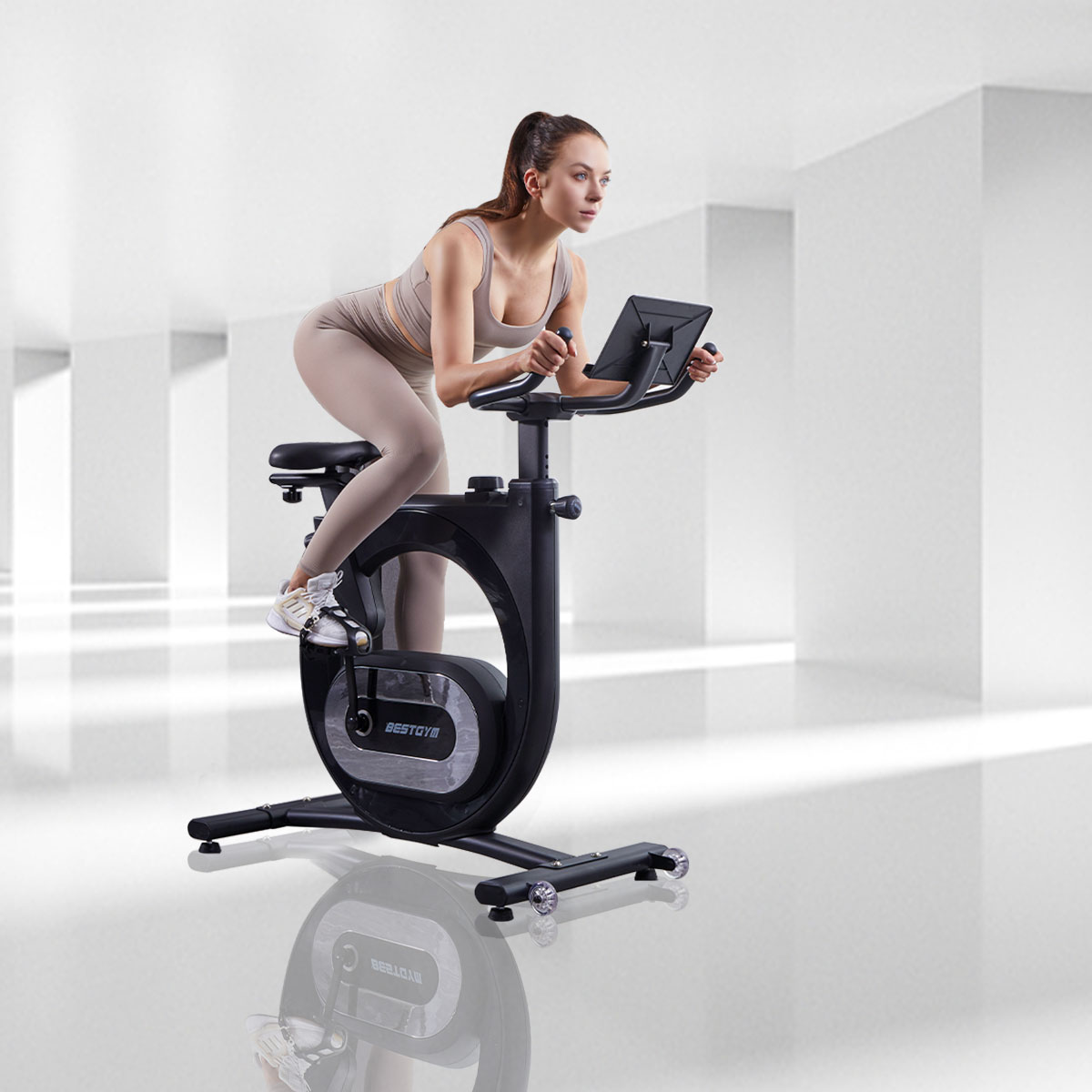
Strategies for Gyms
Gyms looking to resell equipment can benefit from targeted marketing strategies. This includes online advertising, social media campaigns, and partnerships with fitness influencers. Highlight the quality and benefits of your equipment to attract potential buyers.
1. Online Advertising: Utilize pay-per-click (PPC) advertising on platforms like Google Ads and Bing Ads to target keywords related to gym equipment. Create compelling ads that showcase the unique features and benefits of your products. Ensure your landing pages are optimized for conversions, with clear calls to action and detailed product information.
2. Social Media Campaigns: Social media platforms such as Facebook, Instagram, and Twitter offer powerful tools for reaching potential customers. Run targeted ad campaigns to reach specific demographics, such as gym owners, fitness trainers, and fitness enthusiasts. Use high-quality images and videos to demonstrate the functionality and benefits of your equipment. Engage with your audience through regular posts, stories, and live sessions.
3. Partnerships with Fitness Influencers: Collaborate with fitness influencers who have a strong following in the fitness community. Influencers can provide authentic reviews, tutorials, and endorsements of your products. This strategy can significantly increase brand awareness and credibility, as potential buyers are more likely to trust recommendations from influencers they follow and admire.
4. Highlight Quality and Benefits: Clearly communicate the quality and benefits of your equipment in all your marketing materials. Use testimonials, case studies, and user reviews to build trust and demonstrate the effectiveness of your products. Highlight any unique features, such as advanced technology, durability, and user-friendly design, that set your equipment apart from competitors.
Enhancing Online Sales
E-commerce plays a significant role in the sale of gym equipment. Ensure your website is user-friendly and offers a seamless purchasing experience. Utilize SEO strategies to improve your online visibility and attract more customers.
1. User-Friendly Website: Ensure your website is user-friendly, with intuitive navigation, fast loading times, and a mobile-responsive design. Provide detailed product descriptions, high-quality images, and videos that showcase your equipment in use. Include customer reviews and ratings to build trust and credibility.
2. SEO Strategies: Optimize your website for search engines to improve your online visibility. Conduct keyword research to identify relevant terms that potential buyers might use to search for gym equipment. Incorporate these keywords naturally into your website content, product descriptions, blog posts, and metadata. Regularly update your content to keep it fresh and relevant.
3. Content Marketing: Create valuable content that educates and engages your audience. This can include blog posts, how-to guides, workout plans, and equipment maintenance tips. Share your content across your social media channels and encourage your audience to share it as well. Quality content can drive organic traffic to your website and position your brand as an authority in the fitness industry.
4. Email Marketing: Build and maintain an email list of potential and existing customers. Send regular newsletters with updates on new products, special promotions, and industry news. Personalize your emails to cater to the interests and needs of different segments of your audience. Offer exclusive discounts and incentives to encourage repeat purchases.
5. Customer Support: Provide excellent customer support to enhance the buying experience. Offer live chat, email, and phone support to address any questions or concerns promptly. Ensure your return and warranty policies are clearly stated and easy to understand.
6. Payment Options: Offer multiple payment options to accommodate different customer preferences. This can include credit and debit cards, PayPal, and financing options for larger purchases. Ensure the checkout process is secure and straightforward.
Read more: Health and Fitness Market Growth: Opportunities and Challenges in 2024
Practical Tips for Gym Owners on Wholesale Fitness Products
For gym owners, maintaining and optimizing gym equipment is key to ensuring a great workout experience for members. Regular maintenance, strategic space optimization, and choosing multi-functional equipment can enhance your gym's functionality. Building strong relationships with reliable wholesale suppliers can also ensure you always have the best equipment available.
Maintenance and Repair
Regular maintenance and prompt repairs are crucial for extending the lifespan of your equipment. Develop a maintenance schedule and train staff to perform basic upkeep tasks. Partner with suppliers who offer repair services and warranties.
1. Regular Maintenance: Regular maintenance is essential for extending the lifespan of your gym equipment and ensuring its optimal performance. Develop a comprehensive maintenance schedule that includes daily, weekly, and monthly tasks. Train your staff to perform basic upkeep tasks, such as cleaning, lubrication, and tightening of bolts. Regular inspections can help identify potential issues before they become major problems. A manual spin bike requires minimal maintenance compared to electronic models, as it doesn't rely on complex wiring or digital components, making it a durable and reliable option for consistent workouts.
2. Prompt Repairs: Address equipment malfunctions and wear and tear promptly to prevent downtime and potential safety hazards. Establish a protocol for reporting and handling repairs quickly. Keep an inventory of essential spare parts and tools to facilitate immediate repairs when needed. Prompt repairs not only keep your equipment in good working condition but also prevent small issues from escalating into costly repairs.
3. Partner with Reliable Suppliers: Choose suppliers who offer robust after-sales support, including repair services and warranties. A reliable supplier can provide timely assistance and spare parts, ensuring your equipment remains operational. Establishing a good relationship with your suppliers can also lead to better deals and priority service.
4. Staff Training: Ensure your staff is adequately trained to handle basic maintenance and minor repairs. This can include training sessions provided by equipment manufacturers or suppliers. Well-trained staff can perform routine checks and maintenance tasks efficiently, reducing the likelihood of equipment breakdowns.
Space Optimization
Efficient use of space is essential for a well-functioning gym. Plan the layout carefully, ensuring there is enough room for movement and safety. Consider multi-functional equipment that can serve various purposes to save space.
1. Efficient Layout Planning: Efficient use of space is essential for a well-functioning gym. Plan your gym layout carefully, considering the flow of movement and ensuring there is ample space for users to exercise comfortably and safely. Avoid overcrowding by strategically placing equipment to allow easy access and clear pathways.
2. Multi-Functional Equipment: Consider investing in multi-functional equipment that can serve various purposes. For example, adjustable benches, combination machines, and functional trainers can perform multiple exercises, saving space and offering versatility to your members. Multi-functional equipment maximizes the use of available space and provides a wide range of workout options without cluttering the gym floor.
3. Zoning: Divide your gym into distinct zones based on the types of workouts and equipment. For instance, create separate areas for cardio, strength training, free weights, and functional training. Zoning helps manage traffic flow, reduces congestion, and enhances the overall workout experience for members.
4. Vertical Space Utilization: Utilize vertical space to maximize your gym's capacity. Install wall-mounted racks, shelves, and hooks to store smaller equipment such as dumbbells, resistance bands, and medicine balls. Vertical storage solutions keep the floor area clear and organized, making the gym look more spacious and inviting.
How to Choose the Right Exercise Machine?
1. Quality Over Quantity: Invest in high-quality equipment that is durable and reliable. Quality equipment may have a higher upfront cost, but it offers better longevity and performance, leading to long-term savings. Ensure the equipment meets industry standards and has positive reviews from other gym owners and users. 
2. Member Preferences: Consider the preferences and needs of your gym members when selecting equipment. Conduct surveys or gather feedback to understand what types of equipment they prefer. Offering a variety of equipment that caters to different fitness levels and workout styles can enhance member satisfaction and retention.
3. Scalability: Choose equipment that can grow with your gym. As your membership base expands, you may need to add more equipment or upgrade existing machines. Opt for equipment that is easy to scale and can be integrated seamlessly into your gym's layout.
4. Technology Integration: Stay updated with the latest advancements in fitness technology. Equipment with smart features, such as connectivity to fitness apps, data tracking, and interactive displays, can enhance the workout experience and attract tech-savvy members. Investing in technologically advanced equipment can set your gym apart from competitors.
How to Build Strong Relationships with Gym Equipment Wholesale Suppliers?
Building strong relationships with gym equipment wholesale suppliers is essential for ensuring a consistent supply of high-quality products, competitive pricing, and reliable support services. This involves clear communication, regular interactions, mutual trust, and a commitment to long-term collaboration. By fostering these relationships, you can secure better deals, gain access to the latest innovations, and ensure your gym remains well-equipped to meet the needs of your members. For example, establishing a partnership with a reputable supplier for exercise bikes wholesale guarantees access to the latest models and innovations in fitness technology at competitive prices.
1. Reliable Suppliers: Partnering with reliable wholesale suppliers ensures you always have access to the best equipment available. Research and select suppliers with a proven track record of delivering high-quality products and excellent customer service. A reliable supplier can provide timely deliveries, competitive pricing, and comprehensive after-sales support.
2. Negotiation and Contracts: Negotiate favorable terms and conditions with your suppliers. Establish long-term contracts that include maintenance services, warranties, and bulk purchase discounts. Building a strong relationship with your suppliers can lead to better deals, priority service, and access to new products and innovations.
3. Regular Communication: Maintain regular communication with your suppliers to stay informed about new products, promotions, and industry trends. Regular updates can help you plan your equipment purchases and upgrades effectively. A strong relationship with your suppliers fosters trust and collaboration, ensuring your gym remains well-equipped and competitive.
Gym Equipment Wholesale Suppliers FAQs
By understanding these frequently asked questions, gym owners and fitness retailers can make informed decisions when purchasing gym equipment wholesale, ensuring they select the best products and suppliers to meet their needs.
1. What should I look for in a gym equipment wholesale supplier?
When selecting a gym equipment wholesale supplier, consider the following factors:
- Product Quality: Ensure the equipment meets industry standards and is durable.
- Range of Products: A broad selection allows you to meet diverse needs.
- Pricing: Competitive pricing helps you maximize your budget.
- Customer Service: Reliable support for maintenance and repairs is crucial.
- Reputation: Look for suppliers with positive reviews and a proven track record.
- Delivery and Logistics: Efficient delivery and handling ensure timely supply.
2. How can I verify the quality of the equipment from a gym equipment wholesale supplier?
To verify the quality of gym equipment:
- Request Samples: Ask for sample products to assess quality firsthand.
- Certifications: Check for industry-standard certifications like ISO or ASTM.
- Customer Reviews: Read reviews and testimonials from other buyers.
- Manufacturer Information: Research the manufacturer’s reputation and production standards.
- Warranty and Guarantees: Ensure the supplier offers warranties on their products.
3. What are the benefits of buying from gym equipment wholesale suppliers?
Buying gym equipment wholesale offers several benefits:
- Cost Savings: Bulk purchases often come with significant discounts.
- Consistency: Consistent supply ensures you always have the necessary equipment.
- Customization: Some suppliers offer customization options for bulk orders.
- Relationship Building: Establishing a relationship with a supplier can lead to better deals and priority service.
4. How do I find reliable gym equipment wholesale suppliers?
To find reliable suppliers:
- Industry Trade Shows: Attend fitness and sports equipment trade shows.
- Online Directories: Use directories like Alibaba, Global Sources, and ThomasNet.
- Networking: Connect with industry professionals and seek recommendations.
- Online Research: Search for top suppliers and read reviews.
- Supplier Websites: Visit supplier websites to evaluate their offerings and credibility.
5. What should I consider when ordering gym equipment for a home gym versus a commercial gym?
When ordering for a home gym:
- Space: Choose compact and multifunctional equipment.
- Budget: Consider cost-effective options suitable for personal use.
- Ease of Use: Opt for user-friendly machines.
For a commercial gym:
- Durability: Invest in heavy-duty, commercial-grade equipment.
- Variety: Offer a wide range of equipment to cater to diverse user needs.
- Service and Support: Ensure robust after-sales service for maintenance and repairs.
6. Can I customize gym equipment when ordering wholesale?
Yes, many suppliers offer customization options for wholesale orders. This can include:
- Branding: Adding your gym's logo and colors to the equipment.
- Specifications: Customizing dimensions, features, and functionalities.
- Materials: Choosing specific materials for enhanced durability or aesthetics.
- Bulk Discounts: Negotiate terms based on the volume and customization level.
7. How do I handle logistics and shipping for large wholesale orders?
Handling logistics and shipping involves:
- Choosing a Reliable Freight Forwarder: Partner with a reputable logistics company.
- Clear Communication: Coordinate closely with your supplier and freight forwarder.
- Proper Documentation: Ensure all necessary paperwork, such as invoices and customs declarations, is accurate and complete.
- Insurance: Consider insuring your shipment against damage or loss.
- Tracking: Use tracking services to monitor your shipment's progress.
8. What are the common challenges in buying from gym equipment wholesale suppliers, and how can I overcome them?
Common challenges include:
- Quality Control: Mitigate by requesting samples and checking certifications.
- Shipping Delays: Work with reliable logistics partners and plan orders in advance.
- Communication Barriers: Use clear, detailed communication and confirm all agreements in writing.
- Hidden Costs: Clarify all costs upfront, including shipping, taxes, and customs fees.
- After-Sales Service: Choose suppliers with robust support and warranty policies.
9. How can I ensure my gym equipment remains in good condition after purchase?
To maintain gym equipment:
- Regular Maintenance: Follow a strict maintenance schedule.
- Staff Training: Train staff to perform routine checks and basic repairs.
- Proper Usage: Educate users on proper equipment use to prevent damage.
- Cleanliness: Regularly clean equipment to prevent wear and tear.
- Timely Repairs: Address any issues immediately to avoid further damage.
10. Are there eco-friendly options available when buying gym equipment wholesale?
Yes, eco-friendly gym equipment options are available. These may include:
- Recycled Materials: Equipment made from recycled or sustainable materials.
- Energy Efficiency: Machines designed to consume less power.
- Green Certifications: Products certified by environmental organizations.
- Supplier Practices: Choose suppliers committed to sustainable manufacturing practices.
Navigating the gym equipment market involves understanding industry trends, choosing the right suppliers, and implementing effective strategies for marketing and sales. Top suppliers like BESTGYM, Life Fitness, Precor, Cybex International, Technogym and Nautilus offer a range of high-quality equipment, each with unique advantages. For gym owners, maintaining equipment, optimizing space, and building strong supplier relationships are crucial for operational success. Effective marketing strategies, including online advertising, social media campaigns, and partnerships with fitness influencers, can enhance visibility and sales. Buying exercise bikes wholesale provides cost savings and variety, making it a smart choice for expanding your fitness offerings.

